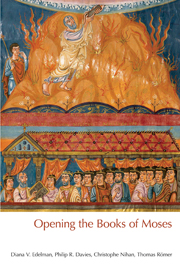3 - Yehud in the Persian Period
Summary
In order to contextualize the creation of the Pentateuch, we need to set forth what can be known about socio-economic, religious and political conditions and currents in Yehud under Persian rule and administration (ca. 538–333 BCE). In light of the likely use of source material from the kingdoms of Israel and Judah in the production of the Pentateuch, it is logical to conclude that these individual books, as well as the larger sequenced collection, were created in Yehud rather than in Babylonia or Egypt amongst the elite of those diaspora communities. Our focus will be, therefore, on the province of Yehud during Persian rule rather than on Jewish communities throughout the Persian empire, although there will be a sketch of what is known of diaspora communities in Babylonia, Syria and Egypt. A review of what is known about the province of Yehud under the preceding Neo-Babylonian rule is necessary to set the stage and understand some of our gaps in knowledge during the control of subsequent world empire, the Persians.
Jews/Judeans and Others in Yehud
In 586 BCE the Neo-Babylonians punished their vassal kingdom of Judah for rebellion by ending its independence and making it a province of the empire. Since they used Aramaic as their diplomatic language in the western portions of their empire, they called the new province Yehud instead of Judah. They destroyed the capital of the former kingdom, Jerusalem, and established Mizpah, a site about 12 km to the northwest, as the provincial administrative seat.
- Type
- Chapter
- Information
- Opening the Books of Moses , pp. 51 - 92Publisher: Acumen PublishingPrint publication year: 2012

